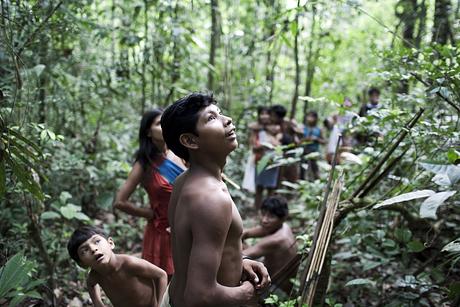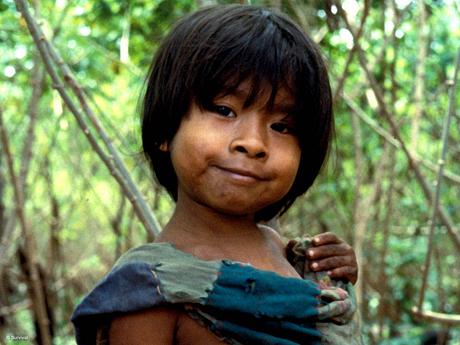Awá woman’s death highlights government neglect
May 17, 2013
 © Domenico Pugliese
© Domenico PuglieseThis page was last updated in 2013 and may contain language which is now outdated.
An Awá woman has died of an easily treatable disease, despite the Brazilian government receiving funds from a mining company for the tribe’s care.
Ajrua Awá was 40 years of age and the mother of five children, the youngest 10 years old. Her death is a huge loss to her community of Awá Indians, which numbers just over 160 people.
She died earlier this month of leishmaniasis, a disease which is easily treatable with adequate health care. Brazilian Indigenous rights organization CIMI reported that she had been suffering from symptoms for over a month.
Many Awá died from common diseases when their lands were opened up in the 1970s for the Great Carajás Program, which included the construction of the world’s largest iron ore mine.
Many other Awá were killed by colonists who flooded into their territory in the wake of the scheme; in some cases, entire families were massacred.
Vale, the mining company responsible for the project, has provided substantial funding to the Brazilian government to support its work with the Awá. However, very little of this money is benefiting the tribe.
The company is now planning to expand its railway line which links the mine to the coast and runs past Awá land, without the consent of the Indians.
The Awá are now Earth’s most threatened tribe as their total population stands at just 450, and their lands are invaded by waves of illegal loggers, settlers and ranchers. They are one of Brazil’s last remaining nomadic hunter-gatherer tribes, and they depend completely on their forest for their survival.
Experts have warned the Awá face genocide and extinction.
Survival is calling for a proper investigation into Ajrua’s death, for a comprehensive health care program for the Awá, and for the invaders to be removed from Awá lands before more lives are lost.




